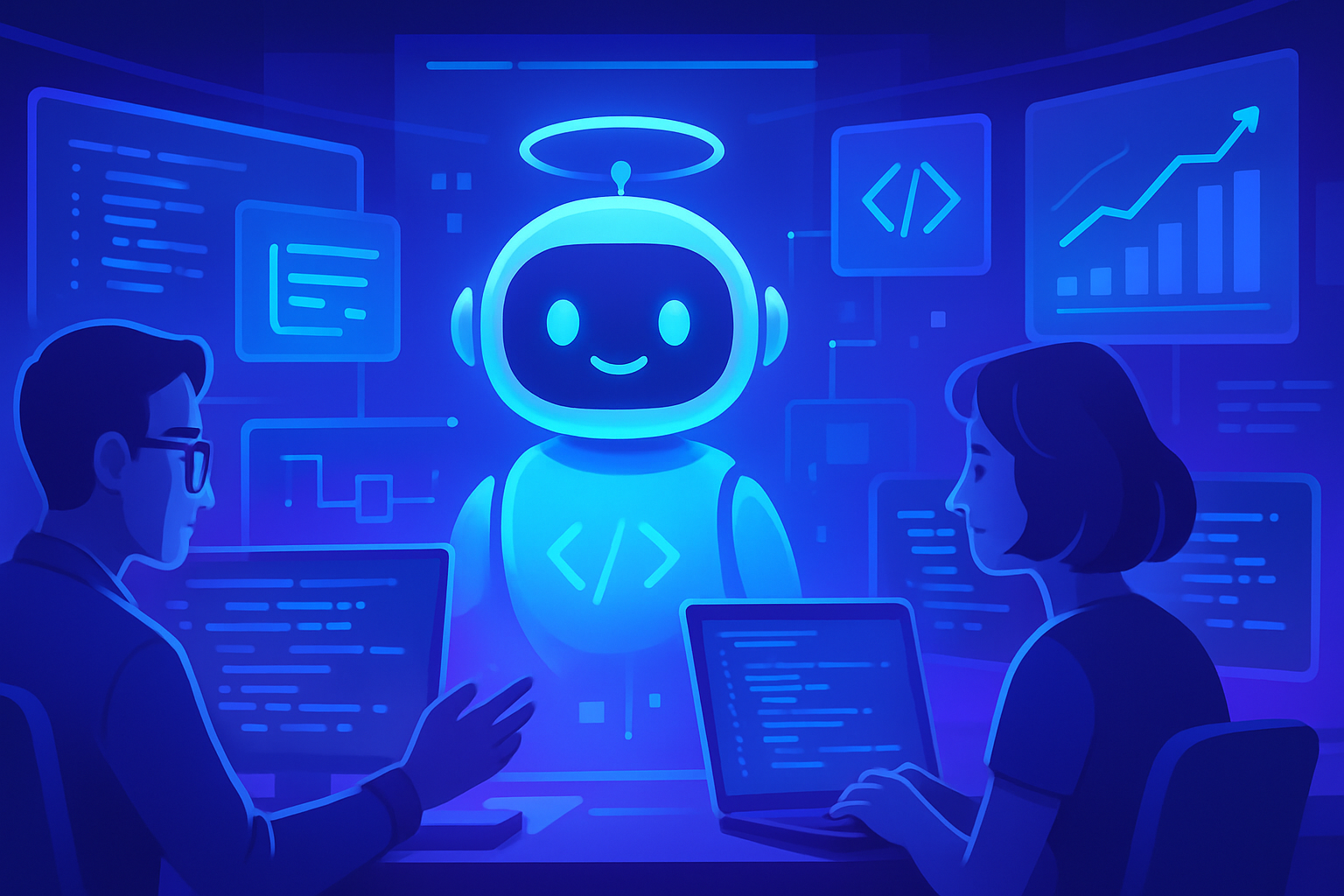ChatGPT is revolutionizing the development landscape. The Codex assistant transcends the traditional limitations of developers, *revolutionizing their daily work*. This innovative tool simplifies tedious tasks while allowing engineers to focus on creativity and innovation. The seamless integration of Codex into ChatGPT fosters a harmonious collaboration between humans and machines.
Codex: An Autonomous Assistant for Developers
On May 16th, OpenAI unveiled Codex, an autonomous agent that is revolutionizing software development. This new assistant, based on an enhanced version of the o3 model, offers advanced features such as code creation, correction, and documentation. Codex operates in an isolated cloud environment, ensuring project security while facilitating GitHub repository management.
Key Features of Codex
Codex stands out for its ability to automate various development tasks. It can draft new features, answer questions about a project’s architecture, or perform complex refactorings. Its efficiency results in rapid task execution, with a time frame ranging from 1 to 30 minutes depending on complexity.
This technology is not limited to mere code manipulation. Codex has the ability to analyze recurring issues, identify configuration inconsistencies, and propose improvements. It detects and fixes bugs, suggests performance optimizations, and issues pull request proposals, providing comprehensive support to developers.
A Practical Integration with ChatGPT
Codex integrates seamlessly with the ChatGPT interface. Users can interact with the agent through a dedicated section, launching new development tasks or consulting existing code repositories. Each task is executed in an isolated cloud container, allowing for real-time tracking of operations. Users receive a detailed report at the end of each task.
It is also possible to request revisions, open pull requests directly on GitHub, or incorporate changes into the local environment. The agent relies on a file AGENTS.md, where coding conventions and testing instructions are clearly specified. This optimizes collaboration between developers and AI, thereby enriching coding processes.
Accessibility and Pricing
Codex is accessible starting May 16th to ChatGPT Pro, Enterprise, and Teams users. An extension for Plus and Education users is planned in the coming weeks. The service is offered at no additional cost while implementing query limits. Additional queries can also be purchased for those requiring more capacity.
The Codex API, under the name codex-mini-latest, is also available. Accessible via the API Responses, the model is charged at $1.50 for 1 million input tokens and $6 for 1 million output tokens. A 75% caching discount allows users to reduce costs, making this technology more affordable.
A Revolution in Software Development
OpenAI envisions a future where developers focus their efforts on innovation and creativity. Intelligent agents, such as Codex, take on repetitive and technical tasks, thus transforming the role of developers. This harmonious collaboration between humans and machines is designed to support a proactive and asynchronous updating of projects.
Currently, the tool allows for significant time savings and automation of essential tasks. However, this does not mean that developers are being replaced. The long-term impact remains to be determined, but OpenAI emphasizes that this advancement is only the beginning of a new era in software development. To learn more about OpenAI’s capabilities, check out these articles: Article 1, Article 2, Article 3, Article 4, Article 5.
Frequently Asked Questions
What is Codex and how does it work?
Codex is an autonomous coding agent developed by OpenAI that uses reinforcement learning to execute programming tasks in an isolated cloud environment. It is capable of writing, correcting, and documenting code while handling user requests.
How can I access Codex in ChatGPT?
Codex is integrated directly into the ChatGPT interface, accessible to users of the Pro, Enterprise and Teams versions. Users can launch development tasks or ask questions via a new dedicated sidebar.
What tasks can Codex accomplish?
Codex can generate new features, fix bugs, refactor code, write unit tests, and produce technical documentation. It is also capable of analyzing recurring issues and suggesting improvements.
Can Codex work on existing projects?
Yes, Codex can interact with existing code repositories, answer questions regarding architecture, and make modifications to the code while executing tasks independently.
How does Codex handle errors or bugs in the code?
Codex has the ability to detect and fix bugs in the code by analyzing inconsistencies and suggesting optimizations to improve overall performance.
Does using Codex incur additional costs?
Initially, using Codex in ChatGPT is offered at no additional cost, but with query limits. Options to purchase additional queries will also be available.
Will Codex be available to all users in the future?
Currently, Codex is offered to Pro, Enterprise, and Teams users, with extensions planned for Plus and Education in the coming weeks.
What is OpenAI’s vision for the future of developers with Codex?
OpenAI envisions a future where developers focus on strategic and creative tasks, while autonomous agents like Codex manage repetitive and technical tasks, making the development process more efficient.






